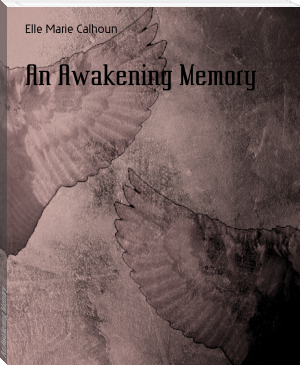Apocalypse - Ellen G. White (good book club books txt) 📗

- Author: Ellen G. White
Book online «Apocalypse - Ellen G. White (good book club books txt) 📗». Author Ellen G. White
As early as 1842 the direction given in this prophecy to "write the vision, and make it plain upon tables, that he may run that readeth it," had suggested to Charles Fitch the preparation of a prophetic chart to illustrate the visions of Daniel and the Revelation. The publication of this chart was regarded as a fulfillment of the command given by Habakkuk. No one, however, then noticed than an apparent delay in the accomplishment of the vision--a tarrying time--is presented in the same prophecy. After the disappointment, this scripture appeared very significant: "The vision is yet for an appointed time, but at the end it shall speak, and not lie: though it tarry, wait for it; because it will surely come, it will not tarry. . . . The just shall live by his faith."
A portion of Ezekiel's prophecy also was a source of strength and comfort to believers: "The word of the Lord came unto me, saying, Son of man, what is that proverb that ye have in the land of Israel, saying, The days are prolonged, and every vision faileth? Tell them therefore, Thus saith the Lord God. . . . The days are at hand, and the effect of every vision. . . . I will speak, and the word that I shall speak shall come to pass; it shall be no more prolonged." "They of the house of Israel say, The vision that he seeth is for many days to come, and he prophesieth of the times that are far off. Therefore say unto them, Thus saith the Lord God; There shall none of My words be prolonged any more, but the word which I have spoken shall be done." Ezekiel 12:21-25, 27, 28.
The waiting ones rejoiced, believing that He who knows the end from the beginning had looked down through the ages and, foreseeing their disappointment, had given them words of courage and hope. Had it not been for such portions of Scripture, admonishing them to wait with patience and to hold fast their confidence in God's word, their faith would have failed in that trying hour. The parable of the ten virgins of Matthew 25 also illustrates the experience of the Adventist people. In Matthew 24, in answer to the question of His disciples concerning the sign of His coming and of the end of the world, Christ had pointed out some of the most important events in the history of the world and of the church from His first to His second advent; namely, the destruction of Jerusalem, the great tribulation of the church under the pagan and papal persecutions, the darkening of the sun and moon, and the falling of the stars. After this He spoke of His coming in His kingdom, and related the parable describing the two classes of servants who look for His appearing. Chapter. 25 opens with the words: "Then shall the kingdom of heaven be likened unto ten virgins." Here is brought to view the church living in the last days, the same that is pointed out in the close of chapter 24. In this parable their experience is illustrated by the incidents of an Eastern marriage.
"Then shall the kingdom of heaven be likened unto ten virgins, which took their lamps, and went forth to meet the bridegroom. And five of them were wise, and five were foolish. They that were foolish took their lamps, and took no oil with them: but the wise took oil in their vessels with their lamps. While the bridegroom tarried, they all slumbered and slept. And at midnight there was a cry made, Behold, the bridegroom cometh; go ye out to meet him."
The coming of Christ, as announced by the first angel's message, was understood to be represented by the coming of the bridegroom. The widespread reformation under the proclamation of His soon coming, answered to the going forth of the virgins. In this parable, as in that of Matthew 24, two classes are represented. All had taken their lamps, the Bible, and by its light had gone forth to meet the Bridegroom. But while "they that were foolish took their lamps, and took no oil with them," the wise took oil in their vessels with their lamps. The latter class had received the grace of God, the regenerating, enlightening power of the Holy Spirit, which renders His word a lamp to the feet and a light to the path.
In the fear of God they had studied the Scriptures to learn the truth, and had earnestly sought for purity of heart and life. These had a personal experience, a faith in God and in His word, which could not be overthrown by disappointment and delay. Others "took their lamps, and took no oil with them." They had moved from impulse. Their fears had been excited by the solemn message, but they had depended upon the faith of their brethren, satisfied with the flickering light of good emotions, without a thorough understanding of the truth or a genuine work of grace in the heart. These had gone forth to meet the Lord, full of hope in the prospect of immediate reward; but they were not prepared for delay and disappointment. When trials came, their faith failed, and their lights burned dim.
"While the bridegroom tarried, they all slumbered and slept." By the tarrying of the bridegroom is represented the passing of the time when the Lord was expected, the disappointment, and the seeming delay. In this time of uncertainty, the interest of the superficial and halfhearted soon began to waver, and their efforts to relax; but those whose faith was based on a personal knowledge of the Bible had a rock beneath their feet, which the waves of disappointment could not wash away. "They all slumbered and slept;" one class in unconcern and abandonment of their faith, the other class patiently waiting till clearer light should be given. Yet in the night of trial the latter seemed to lose, to some extent, their zeal and devotion. The halfhearted and superficial could no longer lean upon the faith of their brethren. Each must stand or fall for himself.
About this time, fanaticism began to appear. Some who had professed to be zealous believers in the message rejected the word of God as the one infallible guide and, claiming to be led by the Spirit, gave themselves up to the control of their own feelings, impressions, and imaginations. There were some who manifested a blind and bigoted zeal, denouncing all who would not sanction their course. Their fanatical ideas and exercises met with no sympathy from the great body of Adventists; yet they served to bring reproach upon the cause of truth.
Satan was seeking by this means to oppose and destroy the work of God. The people had been greatly stirred by the advent movement, thousands of sinners had been converted, and faithful men were giving themselves to the work of proclaiming the truth, even in the tarrying time. The prince of evil was losing his subjects; and in order to bring reproach upon the cause of God, he sought to deceive some who professed the faith and to drive them to extremes. Then his agents stood ready to seize upon every error, every failure, every unbecoming act, and hold it up before the people in the most exaggerated light, to render Adventists and their faith odious. Thus the greater the number whom he could crowd in to make a profession of faith in the second advent while his power controlled their hearts, the greater advantage would he gain by calling attention to them as representatives of the whole body of believers.
Satan is "the accuser of the brethren," and it is his spirit that inspires men to watch for the errors and defects of the Lord's people, and to hold them up to notice, while their good deeds are passed by without a mention. He is always active when God is at work for the salvation of souls. When the sons of God come to present themselves before the Lord, Satan comes also among them. In every revival he is ready to bring in those who are unsanctified in heart and unbalanced in mind. When these have accepted some points of truth, and gained a place with believers, he works through them to introduce theories that will deceive the unwary. No man is proved to be a true Christian because he is found in company with the children of God, even in the house of worship and around the table of the Lord. Satan is frequently there upon the most solemn occasions in the form of those whom he can use as his agents.
The prince of evil contests every inch of ground over which God's people advance in their journey toward the heavenly city. In all the history of the church no reformation has been carried forward without encountering serious obstacles. Thus it was in Paul's day. Wherever the apostle raised up a church, there were some who professed to receive the faith, but who brought in heresies, that, if received, would eventually crowd out the love of the truth. Luther also suffered great perplexity and distress from the course of fanatical persons who claimed that God had spoken directly through them, and who therefore set their own ideas and opinions above the testimony of the Scriptures. Many who were lacking in faith and experience, but who had considerable self-sufficiency, and who loved to hear and tell some new thing, were beguiled by the pretensions of the new teachers, and they joined the agents of Satan in their work of tearing down what God had moved Luther to build up. And the Wesleys, and others who blessed the world by their influence and their faith, encountered at every step the wiles of Satan in pushing overzealous, unbalanced, and unsanctified ones into fanaticism of every grade.
William Miller had no sympathy with those influences that led to fanaticism. He declared, with Luther, that every spirit should be tested by the word of God. "The devil," said Miller, "has great power over the minds of some at the present day. And how shall we know what manner of spirit they are of? The Bible answers: 'By their fruits ye shall know them.'. . . There are many spirits gone out into the world; and we are commanded to try the spirits. The spirit that does not cause us to live soberly, righteously, and godly, in this present world, is not the Spirit of Christ. I am more and more convinced that Satan has much to do in these wild movements. . . . Many among us who pretend to be wholly sanctified, are following the traditions of men, and apparently are as ignorant of truth as others who make no such pretensions."--Bliss, pages 236, 237.
"The spirit of error will lead us from the truth; and the Spirit of God will lead us into truth. But, say you, a man may be in an error, and think he has the truth. What then? We answer, The Spirit and word agree. If a man judges himself by the word of God, and finds a perfect harmony through the whole word, then he must believe he has the truth; but if he finds the spirit by which he is led does not harmonize with the whole tenor of God's law or Book, then let him walk carefully, lest he be caught in the snare of the devil."-- The Advent Herald and Signs of the Times Reporter, vol. 8, No. 23 (Jan. 15, 1845). "I have often obtained more evidence of inward piety from a kindling eye, a wet cheek, and a choked utterance, than from all the noise of Christendom."--Bliss, page 282.
In the days of the Reformation its enemies charged all the evils of fanaticism upon the very ones who were labouring most earnestly against it. A similar course was pursued by the opposers of the advent movement. And not content with misrepresenting and exaggerating the errors of extremists and fanatics, they circulated unfavourable reports that had not the slightest semblance of truth. These persons were actuated by prejudice and hatred. Their peace was disturbed by the proclamation of Christ at the door. They feared it might be true, yet hoped it was not, and this was the secret of





Comments (0)